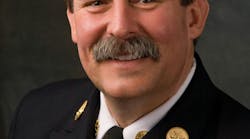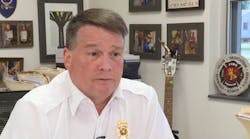It was evident at Firehouse Expo that the future of the fire service is hungry to learn, understand and prepare for the challenges that lie ahead. Many expressed their desire to become officers or chiefs when the time is right.
One thing that I picked up from speaking to instructors and attendees—and that was reinforced at a recent think-tank that included a cross-section of fire service members—is that today’s officers and senior members must be prepared to answer the “why.”
For the past decade, the discussion of the “why” has focused on the foundation of being a firefighter/officer and the height of one’s aspirations: Why did you become a firefighter? Why are you interested in becoming a leader? The next renewal of the “why” might be easier to answer, but it’s reliant on senior members and officers having the understanding to explain the background, function or other pertinent information regarding a direction that’s given or a skill that must be accomplished. Those who came into fire departments 10 or more years ago are accustomed to little to no feedback—except for when pointing out a failure. They now must understand and explain, in detail, the what, when, where and why of an order. They also must provide both positive and negative feedback to help the future leaders to grow.
The phrase, “The kids these days …” has been uttered for decades. However, those who are coming into the fire service now and those who joined over the past few years have had to explain their actions in school more than ever. Think about posts on X, formerly Twitter, where they detail every thought and action, because it’s common to share so as to receive feedback and ideas.
One student who took two days of hands-on training at Expo spoke with an instructor about never having felt so encouraged to improve. The individual was given a task that the person never nailed down in the academy, and it wasn’t the subject of training at the station. The Expo instructors helped the individual through the skill, looking for different ways to complete the mission. It was a skill that required tool knowledge, mechanical aptitude and body strength that the person didn’t have.
The individual isn’t necessarily to blame for not knowing the basics of the tool or how to use it. For those who aren’t from generations of the fire service, they might never have had to use a lawnmower when the homeowners association handles it. The same goes for those who grew up in multifamily structures and never had to landscape. It also is rare to fix appliances or printers these days; it’s cheaper to dispose of such a product and to buy a new one.
Later, outside a classroom, I caught the student saying that the HOT instructor had the in-depth knowledge to find a solution beyond what was taught at academy—straight from a textbook—to complete the task. The well-versed instructor understood that the traditional route to execution wasn’t going to work (answering the “why”) and devised a plan to get the student to understand the tool’s limitations and the physical stance that was required to accomplish the task.
The feedback also was critical, not necessarily because of what many believe is the desire for praise but because candid feedback can help to lead to success and to avoid failure. Without feedback, the youngest members’ desires can be snuffed out quickly, giving those people a negative experience and not making them feel as though they are part of the team that they desire to be. They know that nothing is guaranteed, but they also want to know how to achieve that goal.
As Jacob Johnson, who talks about mentoring, said, “After all, mentoring is why we are who we are today!” It’s your job to pass it forward, no matter how far from or close to hanging up the helmet that you are.
In talking with instructors, whether members who have decades under their belt or those who have only a few years in the fire service, the consensus was that training and education must change and be coupled with an open mind and a firehouse environment that’s rooted in encouragement.






